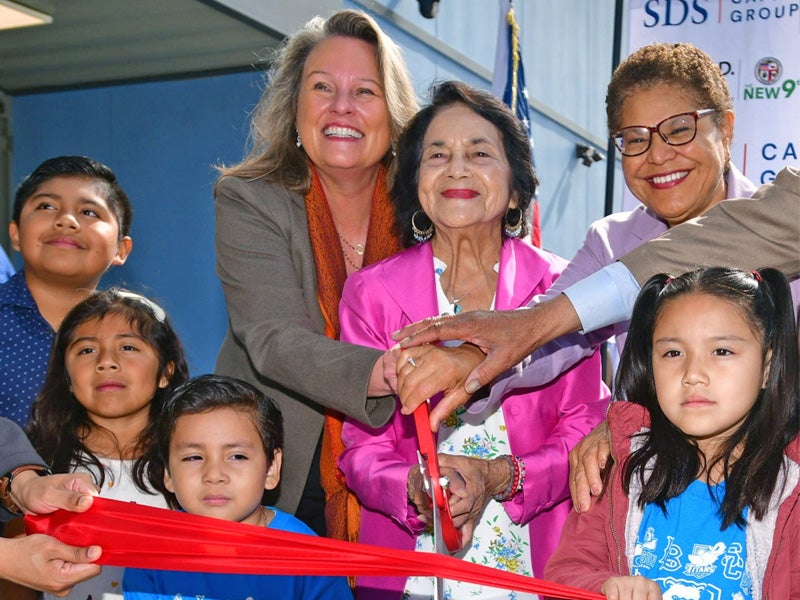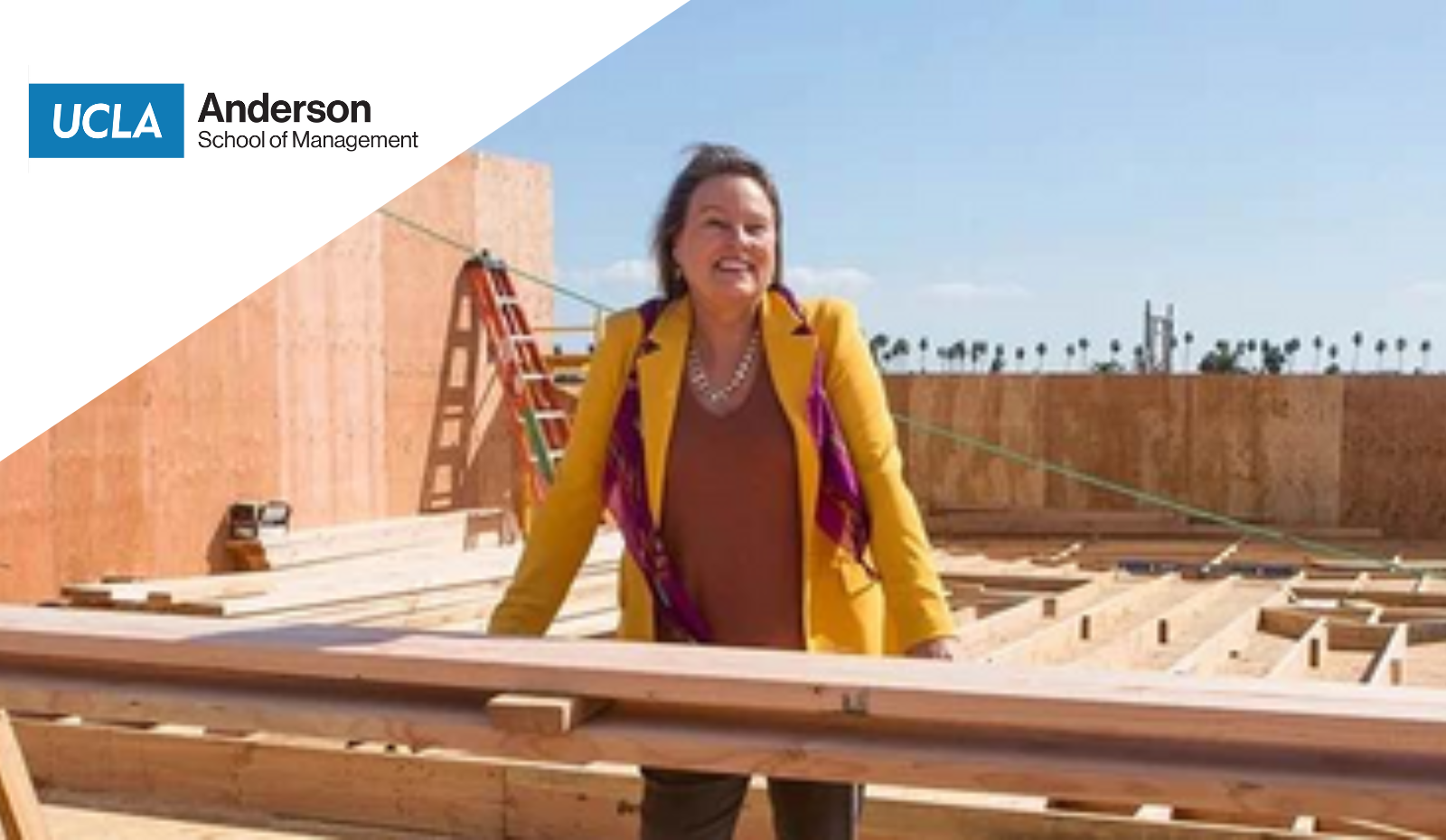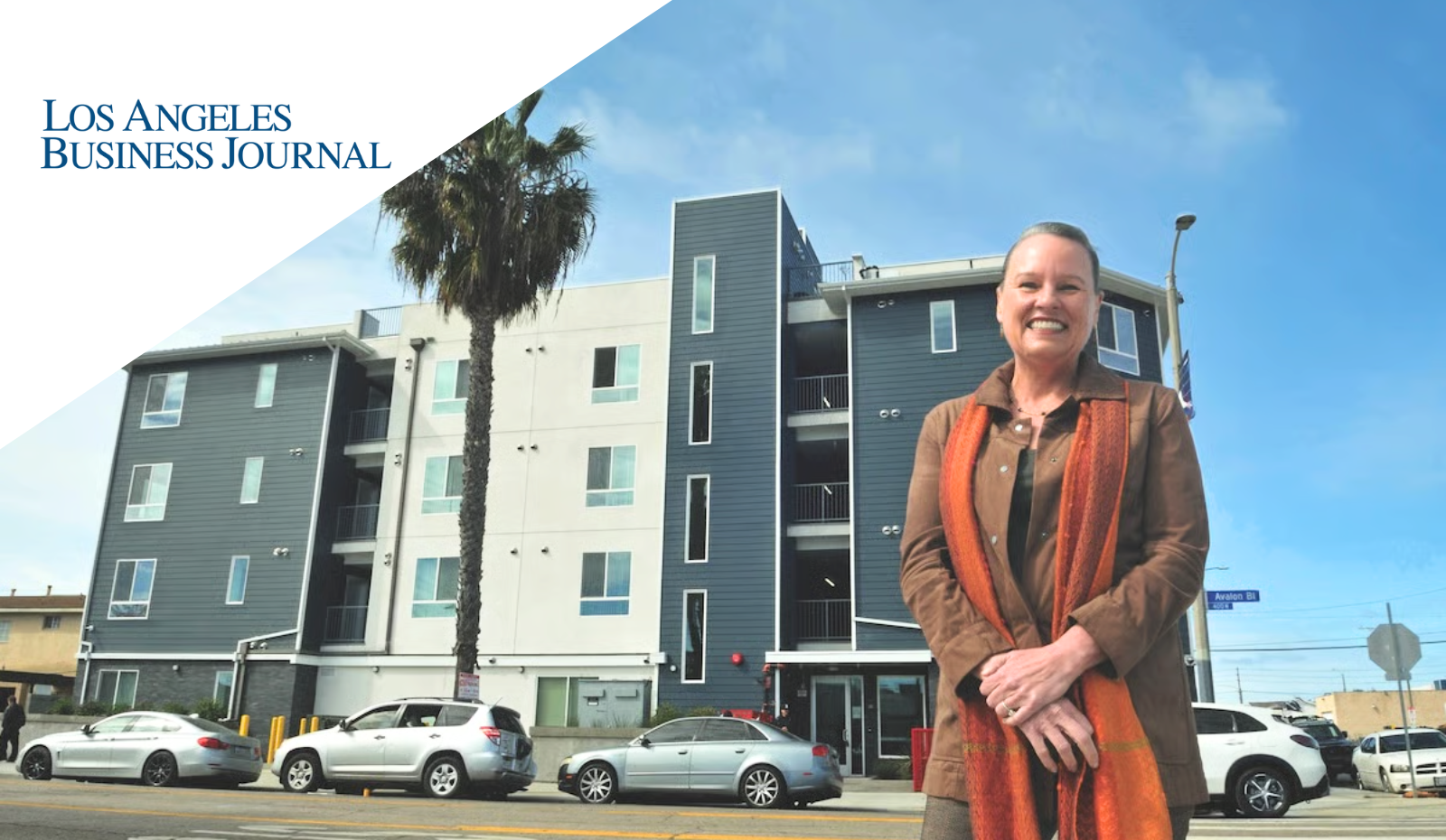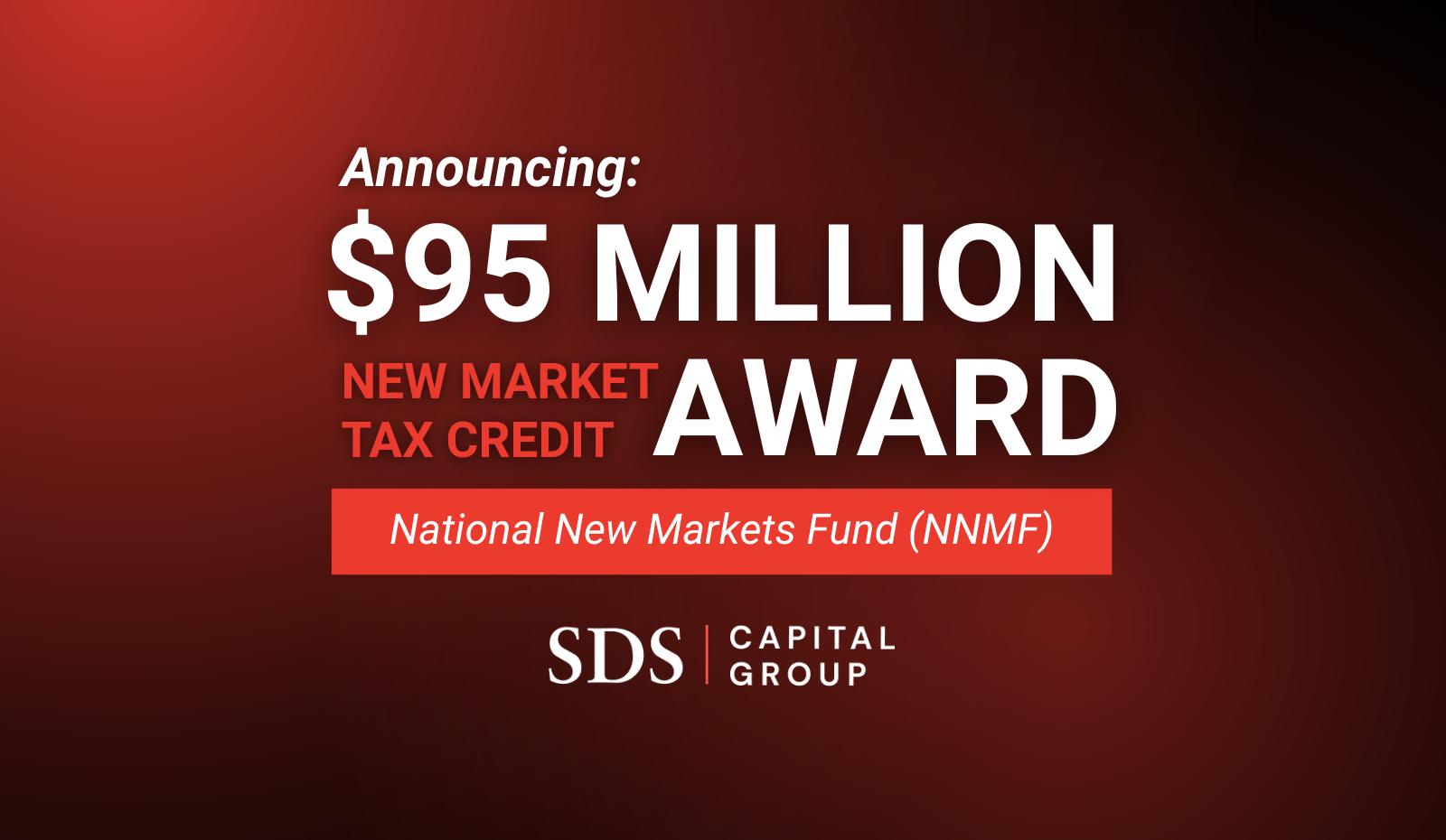October 28, 2024 | 1:22 P.M.
Deborah La Franchi (B.A. ’91, ’00) is founder and CEO of SDS Capital Group, a national leader in impact investing that manages more than $1 billion in assets. Since 2001, SDS Capital Group has made 110 investments to help revitalize some of the most distressed communities in the nation, financing over 6,225 affordable housing units and creating nearly 25,000 jobs. La Franchi is on a crusade to alleviate poverty and is blazing new paths to engage private-sector capital in impact investing, including in SDS-led funds.
Ever since high school, La Franchi has wanted to solve the problem of poverty. She always had her nose in a current newspaper or magazine (cleverly negotiated as a “loan” from her parents’ family-run grocery store in San Rafael, California) so she could keep up with local and international news about economic and social injustices. Her passion for economic justice guided her educational journey at UCLA as a double major in political science and history with a business emphasis, and at Georgetown, where she earned a Master of Public Policy. She spent a year studying in Budapest after the Berlin Wall came down and was in the inaugural class of the UC campus in Washington, D.C., known as the Center for American Politics and Public Policy (CAPPP). She interned with the U.S. Congressional Select Committee on Hunger, the U.S. Vice President’s Office and the Brookings Institute. “I really learned what multitasking was,” she laughs. “It served me well later when I needed to keep lots of things progressing forward at the same time.”
Early in her career, La Franchi landed a full-time position with Los Angeles Mayor Richard Riordan’s team, where she ultimately served as Riordan’s assistant deputy mayor for economic development. She credits this period of her life, during which she also added an Anderson MBA to her credentials, as vital to SDS Capital Group’s success over the last 23 years. “Riordan was a great boss,” says La Franchi, who felt encouraged to find novel solutions to the challenges of high unemployment and violence facing Los Angeles in the 1990s. “He always said, ‘Ask for forgiveness, not permission.’ This suited my personality perfectly, and I still take it to heart to this day.”
On Riordan’s team, La Franchi was instrumental in spearheading the groundwork for the Genesis LA funds to revitalize Los Angeles’ distressed communities. When the larger initiative was spun out from the Mayor’s Office to ensure it would support L.A.’s community-driven financial efforts for decades into the future, Riordan named La Franchi its first president and CEO.
While running Genesis LA, La Franchi had an epiphany about how private equity could be used as a tool in the battle against poverty. She pivoted to found SDS Capital Group in 2001 with a clear vision: develop impact funds that deploy private-sector capital in a manner that revitalizes underserved communities while also achieving investors’ financial goals.

SDS Capital Group’s first Supportive Housing Fund project to be completed was the Dolores Huerta Apartments, where La Franchi, civil rights activist Huerta, Los Angeles Mayor Karen Bass and pupils from the Dolores Huerta Elementary School attended the ribbon cutting
Today, SDS Capital manages over $1.4 billion in impact assets across six different fund and finance platforms throughout the U.S., each with a distinct geographic focus. All are focused on providing private-sector capital to developers of affordable housing and other projects in communities where, on average, 31% of the population lives below the national poverty level.
“Impact investing is only scalable and successful to the extent it achieves our investors’ financial goals,” La Franchi says. “If we can’t meet the targeted returns for our investors, they stop signing up as our partner — and this is the beginning of the end of our ability to make impact. At SDS, impact and financial stewardship are inseparable and are embedded in every investment.”
Most SDS funds are structured to achieve risk-adjusted market rates of return that are comparable to non-impact funds. “My goal is to attract even more private-sector investors, particularly pension funds and other non-traditional institutional investors, to impact investing,” La Franchi says. “Investors do not need to accept below-market returns to participate in impact investing. There are market-rate options in the industry.”
In just the past two years La Franchi and SDS Capital received more than a dozen awards. The company was named among ImpactAssets’ top 50 investment managers for the last seven years, and La Franchi is included in the 2024 cadre of the annual Forbes 50 over 50 award for women in investment.
Recently, she was tapped to serve her city under another L.A. mayor, this time the Honorable Karen Bass. La Franchi served on Bass’ Transition Team to help formulate some new policies, such as the Mayor’s Executive Directive 1 that aims to streamline approvals for affordable housing projects. “I see a lot of parallels between L.A. of the nineties and today. Many residents and businesses are asking, ‘Should I stay here given the level of homelessness, the crime and the direction of the city?’ Mayor Bass has a heavy lift. I’m very happy to add my expertise to help however I can. Fixing these immense challenges requires the public, private and nonprofit sectors to all work together.”
La Franchi attributes her success and ascent in a male-dominated field to a few key assets, including her Anderson FEMBA. “Working full time to launch the Genesis LA funds while also earning my MBA was very challenging, but I knew I had to fill some of the gaps in my financial skill set in order to move from marketing the funds to designing, structuring, pitching and, ultimately, managing them with SDS Capital Group,” La Franchi says.
Her willingness to innovate gave her another edge. “My goal to engage a wider range of investors in SDS impact funds forced me to create new approaches and financing models to offer returns they could say yes to. I am particularly proud of GCM Grosvenor’s $50 million investment this year to SDS’s American South Real Estate Fund (ASREF) II, on behalf of five different public pension funds. ASREF cannot grow if we are unable to secure public pension fund capital — it’s that simple,” says La Franchi. “Pension funds are duty-bound to ensure they pursue risk-adjusted market rates of return. By investing in ASREF II, Grosvenor sends a signal to the pension industry that investors can meet their required rates of return even while investing in the right impact funds.”
SDS’s Supportive Housing Fund is another example of La Franchi’s innovative thinking.
“As an Angeleno, I am deeply concerned about California’s homelessness crisis. California has more than 50% of the country’s unsheltered homeless population, and Los Angeles County has over 75,000 unhoused Angelenos,” La Franchi says.
“There was no prototype for creating a private-equity model focused on financing 100% permanent supportive housing (PSH) units for the unhoused. We raised $190 million, mostly from banks and investors interested in both impact and market rates of return. We are seeking to finance the construction of over 1,800 PSH units for unhoused Californians over the next three years,” says La Franchi.
“We have a great partner, the builder RMG Housing, who collaborated with us to create a new financial and construction/development model that could scale more easily using private capital rather than the traditional government sources for land and construction.” SDS covers up to 97% of construction costs, and RMG Housing comes up with the rest.
“There’s no outside capital involved,” La Franchi says. “We use market-rate private equity and zero taxpayer dollars to finance 100% of the acquisition and construction cost.” This model enables a rapid pace and significantly reduces the cost to build from $650,000 for a unit funded through public subsidies to $250,000 per unit, on average, for SDS’s Supportive Housing Fund projects. SHF’s first project recently completed construction in South L.A. and will be receiving its first tenants. The fund utilizes many innovative development approaches to keep costs down and build more units — for example, an SHF project in Concord, California, recently used automated modular construction.
“We also ‘give back’ through our Sustainable Communities Fund, and our track record there makes us all proud,” La Franchi says. The Sustainable Communities Fund is a nonprofit foundation fund La Franchi launched in 2011. It was capitalized with about $5 million from SDS Capital’s New Markets Tax Credit exit fees that SDS donated to SCF, and $2 million in government grants. SCF provides flexible microfinancing to institutions in distressed communities primarily in the U.S., but occasionally abroad, too. “The $10.1 million of total loans to 26 such groups have resulted in more than 2,000 small loans to entrepreneurs working hard to improve conditions in the poorest communities,” La Franchi says.
To maintain SDS’s performance La Franchi invests heavily in the continuous improvement of the business processes, infrastructure and management tools underlying SDS’s funds. “With 47 different institutional investors and 90 investments to date, we need robust procedures and systems, and we stay on top of new technology, software, data and processes,” says La Franchi.
“None of this is possible without our talented staff of 27 and our external partners, who are fully aligned with our core values,” she adds. Since inception, SDS staff continues to be predominantly composed of women and minorities. “Diversity of background, culture, ethnicity and gender results in more diversity of thought, more ideas and more options to consider. Diversity is one of our vital superpowers.
“Mentoring and developing the next generation of women and minorities in impact investing is a long-standing passion of mine,” says La Franchi. “Only $3 of every $1,000 of capital invested in real estate funds is invested with a woman-owned fund manager. That’s not even 1% of the capital invested! We need to nurture young talent by offering programs to youth even before they get to college, so they are exposed to finance and real estate early, and follow up with mentoring and internship opportunities while they’re in college.
“It’s one of the reasons I’ve been involved with UCLA Anderson’s Ziman Center for Real Estate, and why I have recently become an advisor to the UCLA Luskin School of Public Affairs for their new real estate master’s program. There are tremendous untapped benefits to blending disciplines like public policy and real estate finance to address entrenched social problems. I look forward to helping the next generation shape their future in this sector that sorely needs their perspectives, so they can find their unique mission like I did.”



